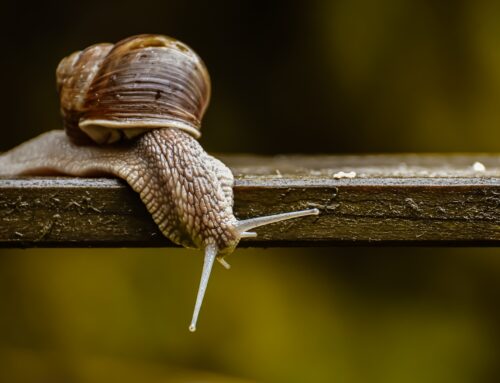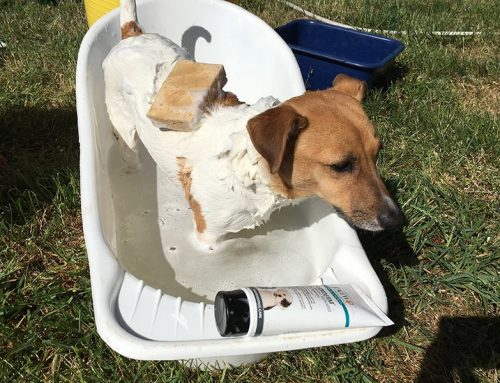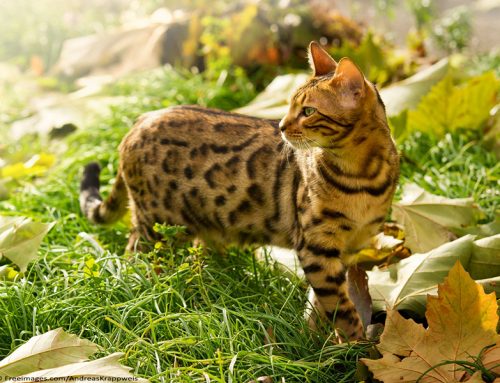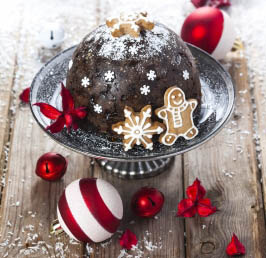 Christmas Pudding, Christmas Cakes, and Christmas Mince Pies are all jam-packed full of raisins and sultanas which, as a concentrated type of grape, can lead to serious illness. The mechanism of grape poisoning is not clear and every dog has a different threshold for illness. Because of this, it is much safer to simply avoid them. The fat and sugar in the shortcrust pastry is another forbidden delight. Foods high in fat are one of the causative agents of pancreatitis, and smoked or heavily salted meat adds to the likelihood of acute and fatal pancreatitis.
Christmas Pudding, Christmas Cakes, and Christmas Mince Pies are all jam-packed full of raisins and sultanas which, as a concentrated type of grape, can lead to serious illness. The mechanism of grape poisoning is not clear and every dog has a different threshold for illness. Because of this, it is much safer to simply avoid them. The fat and sugar in the shortcrust pastry is another forbidden delight. Foods high in fat are one of the causative agents of pancreatitis, and smoked or heavily salted meat adds to the likelihood of acute and fatal pancreatitis.
The alcohol that is added in copious quantities to cakes and puddings will cause gastric irritation and vomiting. No Rum Balls for Baxter the Boxer!
Most dog owners know all about the toxic effects of the Xanthine in Chocolate. The worst chocolate ingestion patient we ever saw was a 7 kg Maltese who ate a box of dark liqueur laced chocolates. She almost completely destroyed her kidney function, and she was sadly left with quite marked neurological defects, despite intensive care for a week. The wee packs of chocolate coins which are sometimes used to decorate trees are also problematic. Remember dogs have a 40,000 times stronger sense of smell and a shiny tin foil wrapper is not going to hide the chocolate odour. Chocolate foil must be disposed of carefully too, chewed up tin foil is very damaging to the intestinal tract.
Meat and bones… what could go wrong there? Cooked bones can splinter, lodge in the oesophagus, perforate gut linings causing peritonitis, and/or lodge across the palate and break teeth, exposing the pulp. Hollow bones such as bird bones, always splinter and have sharp ends. Be careful disposing of leftover meat bones and scraps… many a resourceful Border Collie has become a bin diver and eaten through the bin liner in search of some sharp chop bones or a turkey carcass. String ties from rolled meats have to be thoughtfully disposed of too, string is a linear foreign body and will scissor through the gut internally.
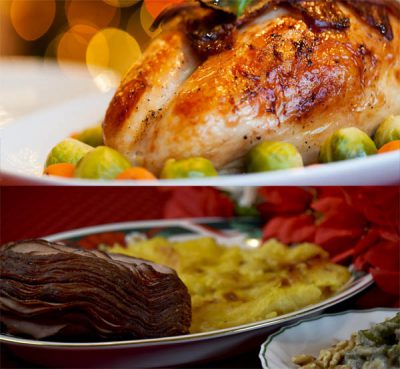 Turkey and chicken skin is far too fatty, as is gravy. If Fido and Felix are to have a turkey dinner, then simply give some turkey or chicken meat on it’s own, no salty or fatty gravy please. Ham and all pork products are off the menu for the same reason.
Turkey and chicken skin is far too fatty, as is gravy. If Fido and Felix are to have a turkey dinner, then simply give some turkey or chicken meat on it’s own, no salty or fatty gravy please. Ham and all pork products are off the menu for the same reason.
Yes, Cats do get pancreatitis but it is a much more insidious and difficult to diagnose disease. It can lead to a very complex condition of inflammation of the liver, gastric fundus and pancreas which is painful and horrible.
Macadamia Nuts can cause dogs to experience weakness, depression, tremors, vomiting and a very high body temperature. Salty Peanuts can be toxic to some breeds and Walnuts too.
Some very silly people think it is funny to let a dog drink alcohol, the effects are magnified in canines due to their different liver metabolism, so keep the Veuve for those who appreciate it most and also take care with any leftovers which have alcohol in the cooking process!
Onions, garlic and other bulb vegetables such as leeks, shallots and chives are a definite no. Cats are very sensitive to powdered onions and/or garlic too. Herbs and spices often contain onion powder and other spicy contents which will lead to stomach upsets. A small amount of Garlic is a contentious issue but it can have a cumulative effect leading to serious health problems. Also, definitely no stuffing allowed.
Watch out for the ‘sugar free’ human desserts, as sometimes the artificial sweetener is Xylitol which is dangerous to dogs. Yeast and uncooked pastry dough will ferment and cause painful stomach cramps. Stone fruit pips will cause intestinal blockage. Beware milk, ice cream and other dairy desserts in little tummies that are usually Lactose intolerant.
Popular Christmas plants Poinsettias, Holly and Mistletoe are toxic as are all the Lilium type plants for Cats. Beware of cats and kittens with Tinsel and watch those fluffy mice toys with the nice long “pull off and eat me” tails. Cut the tails off first.
This is by no means an exhaustive list, just the most common ones that spring to mind when thinking about Christmas lunch and dinner. If your pet experiences anything out of the ordinary, do not hesitate to call an emergency number and get advice!



